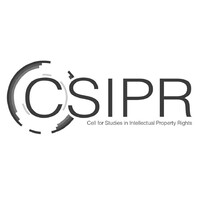[This piece has been authored by Shivang Mishra, student at the National Law University, Assam.]
Introduction
Arbitration – hailed as a highly effective and efficient means of resolving disputes – has made its way, as a dispute resolution mechanism into a plethora of commercial disputes. As the Indian legislature and judiciary continue to facilitate pro-arbitration developments, one area where a myriad of clarifications is still anticipated and required, remains the arbitrability of disputes related to intellectual property rights (“IPR”).
Arbitration in India is governed by the Arbitration and Conciliation Act, 1996 (“Act”), which is based on the UNCITRAL Model Law on International Commercial Arbitration, 1985. Section 34(2)(b) of the Act (which follows Article 34(b) of the UNCITRAL Model Law), lays down the provision for setting aside of arbitral awards when the dispute’s subject matter is either not amenable to arbitration or is contrary to Indian public policy. However, the Act does not lay down what subjects are arbitrable, thus, in a common law country like India, the judicial precedents decide the scope of arbitrability in different matters of dispute.
Booz Allen Case
In this regard, the Supreme Court (“SC”), in its landmark ruling, in Booz Allen Hamilton v. SBI Home Finance (“Booz Allen”), noted that, “Generally and traditionally all disputes relating to rights in personam are considered to be amenable to arbitration; and all disputes relating to rights in rem are required to be adjudicated by courts and public tribunals, being unsuited for private arbitration.” It was held that matters such as insolvency and winding up, criminal matters, matrimonial and guardianship disputes, etc., that affect the society at large, cannot be arbitrated. Another important observation in this case was that it established that subordinate rights in personam emanating from rights in remmust be considered arbitrable.
An illustration on the scope of arbitrability of IPR disputes is provided by the Booz Allen case itself, wherein, it was noted that the validity of the underlying patent could not be arbitrated, but the rights under a patent licence may so be. Arbitration finds it foundation in the concept that the arbitrator’s authority stems from the parties’ arbitration agreement, i.e., that the arbitrator has no authority to rule on subjects that might bind third parties. This view of the Court has aided the facilitation of arbitration of IPR-related disputes and this stance was in stark contrast to the a rather rigid understanding given in the Copyright Act, 1957. The Delhi High Court, in 1991, had held that Chapter XII of the Copyright Act (which relates to civil remedies) envisages that infringement of copyright in any work, as well as any other right conferred by the Copyright Act, 1957 must be filed in the appropriate district court, and thus, such disputes are not amenable to arbitration.
In Eros International v. Telemax Links India Pvt. Ltd. , the High Court of Judicature at Bombay, placing reliance on Booz Allen, held that in claims of infringement or passing off suits, the registrant of the mark, while having his copyright protected in rem (against the world at large), but the decision of the Court would not have any effect on third-parties. Thus, the Court noted, “that action and that remedy can only ever be an action in personam and it is never an action in rem”, therefore, it held that such IPR disputes are arbitrable. The Bombay High Court, in EuroKids International Private Limited v. Bhaskar Vidhyapeeth Shikshan Sanstha, observed that the petitioner’s (i.e., EuroKids International Pvt. Ltd.) ownership of the trademark and copyright was undisputed. Therefore, the petitioner’s proceedings were not in rem. Consequently, the Court allowed the petition and restricted the respondent from violating the terms of the franchise agreement. In Hero Electric Vehicles Private Limited v. Lectro E- Mobility Private Limited, the Delhi High Court decided that a trademark dispute could be arbitrated because the plaintiffs were attempting to defend their trademark rights against a specific group rather than the entire world. The Delhi High Court, in another matter, set aside an arbitral award which held that restraining the respondent from using the source code and SRS of Software (a document describing the functionality of a software and laying down what functions the software will carry out and how it would do so) would be a relief beyond the ambit of the arbitration. The Court ruled that since the remedy was solely sought against the respondent, it would be a right in personam, in light of the copyright, and hence, arbitration shall not be invalidated.
Another case from the Bombay High Court provides us with a dispute over IPR which goes beyond the scope of arbitration since it involved rights in rem. In the case of The Indian Performing Right Society Ltd. v. Entertainment Network (India) Ltd., the broadcaster (Entertainment Network, who were the respondents in this case) had obtained the license for the copyrighted material (in this case, sound recordings) from the appellant. The dispute originated from the respondents’ claimed violation of the parties’ licence agreements, which granted the respondents the right to broadcast works from the applicant’s repertoire on their FM Radio Channels. The applicants cancelled the licencing agreements after requesting that the respondents fulfil their contractual obligations. As a result, the contract’s arbitration clause was invoked by the respondents. The arbitrator held that the owner of the license of the copyright of the sound recording does not require a licence or authorization from the owner of the copyright in a literary or musical work to the extent that the literary or musical work is legitimately incorporated into the sound recording. However, the High Court set aside the arbitral award observing that “said award would be in the nature of an adjudication on an action in rem” and held that such an award would, in comparable arrangements with other licensees that sought to use sound recordings of the original work, make the petitioner’s (the Indian Performing Right Society, in this case) copyright licences redundant. The Court here rightly held that when rights in rem are in dispute, they are not arbitrable.
Falling out of Favour?
The Constitutional Courts across the nation have, however, deviated from the judgement in the case of Booz Allen. In 2016, the Hon’ble Supreme Court, in the case of A. Ayyasamy v. A. Paramasivam, held that patents, trademarks and copyright are to be “generally treated as non-arbitrable”. However, the precedential value of this case is debatable since the facts of the case were not related to Intellectual Property and the remarks of the court are Obiter Dicta. It was more of a scholastic view than a judicial opinion. This has also been reiterated by the Hon’ble Madras High Court.
Nevertheless, Courts have continued to view IPR disputes as falling beyond the scope of arbitration. The Bombay High Court, in Steel Authority of India Ltd. v. SKS Ispat and Power Ltd., held that, “The rights to a trademark and remedies in connection therewith are matters in rem and by their very nature not amenable to the jurisdiction of a private forum chosen by the parties”. The Madras High Court also, in Sanjay Lalwani v. Jyostar Enterprises, ruled that copyright issues are related to rights in rem, and are, hence, non-arbitrable.
Vidya Drolia: A Step in the Right Direction
The Supreme Court, in its landmark decision in the case of Vidya Drolia v. Durga Trading Corporation (“Vidya Drolia”) reiterated and reinforced the principle laid down in Booz Allen. It developed a four-fold test to decide the scope of arbitrability in a dispute. It was held that disputes shall not be arbitrable when these –
- relate to actions in rem (except those pertaining to subordinate rights in personam arising from rights in rem);
- affect third parties or are having erga omnes effect (effect towards all) and thus require centralize adjudication since mutual adjudication would be inappropriate;
- relate to inalienable sovereign and public interest functions of the State; or
- are either expressly or impliedly non-arbitrable under a specific statute.
However, the Court held that these conditions are not water-tight and these can or may “dovetail and overlap”, and must be applied “holistically and pragmatically” to decide the contours of arbitrability of the subject-matter of disputes. It noted that there can be an interplay between rights in rem and rights in personam. It strengthens the position taken by Supreme Court in Booz Allen by holding that a right in rem can result in an enforceable right in personam. Given that an IPR owner’s right is a right in rem, enforceable against the whole world, this is a key aspect to remember for arbitrability of IPR. Passing off in trademarks and copyright infringement, on the other hand, are conflicts in personam, and the decisions have no bearing on the rights of other parties.
The Delhi High Court, in 2021, referred to the Vidya Drolia judgement in a trademark dispute in Golden Tobie (P) Ltd. v.Golden Tobacco Ltd. (“Golden Tobie”) to hold that a dispute over the right to use a trademark given in an agreement, by a certain party, is arbitrable. It builds upon the stance taken by the Hon’ble Supreme Court in the Vidya Drolia case to hold that adjudication over disputes of usage/infringement of copyright or trademark does not have bearing on third parties and, thus, such disputes can and may be resolved byarbitration.
Conclusion
India’s Arbitration Act aims to facilitate quick and efficient dispute resolution of commercial disputes while accommodating the autonomy of both the parties. It is critical to understand here that the very basis of arbitration is that an appointed arbitrator cannot venture beyond the scope of the arbitration agreement and adjudicate upon matters which may have an effect on third parties.
However, it is also important to create a conducive environment where IPR disputes, which although relate to rights in rem, can and may be resolved by way of arbitration as issues such as licensing, agreements etc., primarily relate to two or more concerned parties and have no bearing on any other person. World Intellectual Property Organization, one of the 15 specialized agencies of the United Nations, also promotes arbitration of IP related disputes as this method of dispute resolution is cheaper, quicker and efficient. India, by way of legislations and judicial pronouncements, has also moved towards a largely pro-arbitration stance. Thus, it is essential to adhere to precedents set by Constitutional Courts, particularly in cases such as Booz Allen, Vidya Drolia and Golden Tobie, and, thereby, ensure that parties can freely and easily, resolve disputes relating to subordinate rights in personam arising from rights in rem, by arbitration.



